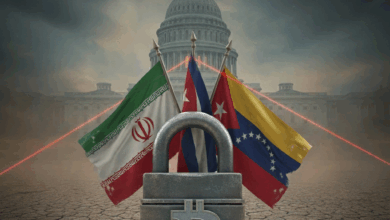Saudi Arabia’s Subtle Bitcoin Bet Is Hiding in Plain Sight

In a development that could reshape perceptions of institutional crypto adoption, the Saudi Central Bank has revealed its ownership of shares in MicroStrategy, the U.S. firm renowned for holding more Bitcoin than any other publicly traded company.
The disclosure suggests a calculated step toward Bitcoin exposure—without directly purchasing the digital asset.
MicroStrategy, under the leadership of executive chairman Michael Saylor, currently holds over 200,000 BTC on its balance sheet. By acquiring shares in the company, Saudi Arabia is effectively backing Bitcoin’s long-term value proposition through a corporate proxy.
The move positions the oil-rich kingdom to benefit from potential Bitcoin upside while sidestepping the regulatory and political complexities that often come with direct crypto holdings. It also signals growing interest from sovereign players in digital assets, as central banks and wealth funds globally begin to explore ways to diversify portfolios and future-proof their economies.
From Petro to Protocol?
Traditionally conservative in its investment approach, the Saudi Central Bank’s entry into the Bitcoin is a major step forward. It reflects a broader trend among nations with significant capital reserves reconsidering how to allocate assets in a changing global financial landscape.
While there’s no indication that Saudi Arabia has bought Bitcoin outright, its MicroStrategy stake offers a strategic bridge: exposure to Bitcoin’s performance without adopting it as a reserve asset—at least for now.
There is no doubt that this development could serve as a bellwether for other governments and sovereign wealth funds. Rather than diving headfirst into crypto markets, many may choose to gain indirect exposure via publicly traded firms or Bitcoin-related ETFs.
For the crypto community, Saudi Arabia’s move may be seen as a bullish signal—further legitimizing Bitcoin as an asset class and accelerating the narrative of institutional and sovereign adoption.
As global macroeconomic shifts continue, all eyes will be on how central banks, particularly those in resource-rich nations, navigate the digital frontier. With one foot in tradition and the other edging toward innovation, Saudi Arabia’s investment may be the beginning of a new era in state-level crypto engagement.





